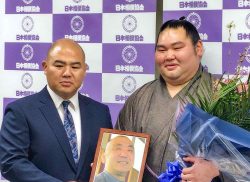Shadowy Organ Transplant / How an NPO Exploited a Law to Arrange Dodgy Overseas Organ Transplants

A hospital in Belarus, seen in July 2021, where a liver transplant was performed through the mediation of the Intractable Disease Patient Support Association.
The Yomiuri Shimbun
10:28 JST, February 28, 2023
The recent arrest of the director of a nonprofit organization on suspicion of arranging overseas organ transplants without authorization has prompted the Diet to begin discussions on revising the current law regulating these life-saving procedures. It has also led the Health, Labor and Welfare Ministry to launch a probe into transplants conducted overseas. This is the first installment in a series looking into the current situation for organ transplants in Japan, including the lack of legal oversight and the low number of organ donors.
***
“We cannot let the murky actions of these mediators go on like this,” Diet member Hiromi Mitsubayashi, 67, who serves as secretary general of the Liberal Democratic Party’s parliamentary league for organ transplantation, told The Yomiuri Shimbun in mid-February.
The group will soon begin discussions on reviewing the Organ Transplant Law, a lawmaker-initiated piece of legislation that went into effect in October 1997. The law, which enables the organs of brain-dead patients to be donated for transplantation, stipulates that a party arranging the transplant of an organ from a deceased donor, including the brain-dead, must first obtain permission from the health minister.
Except for cornea grafting, the Japan Organ Transplant Network is the only organization so authorized to do so. Through the years, the number of registered donors has remained static, with only about 100 organs procured annually, including from the brain-dead and those who died of cardiac arrest.
On Feb. 20, the Nippon Ishin (Japan Innovation Party) pointed out shortcomings of the law during a subcommittee meeting of the lower house’s Budget Committee.
“This is an incident caused by a legislative act of omission,” Ishin member Taku Ikeshita, 47, said. “It’s time for the Diet to move on it.”
It was on Feb. 7 that the Metropolitan Police Department arrested Hiromichi Kikuchi, 62, the director of the Tokyo-based nonprofit organization Intractable Disease Patient Support Association, on suspicion of violating the law.
Two days later, the MPD announced that the arrest stemmed from the suspected unauthorized arrangement of a liver transplant for a Japanese patient in Belarus. It was the first time since the law was enacted that such allegations came to light.
The MPD focused its case on the fact that a man who underwent the transplant later died, and that the NPO has received exorbitant fees ranging from ¥18 million to ¥85 million from patients.
Flaws in the law
“The problem is that for about 20 years starting around 2003, the NPO had been openly recruiting patients and arranging for overseas transplants,” said Hiroto Egawa, who chairs the Japan Society for Transplantation.
With the exception of certain child patients, the practice of going overseas for organ transplants is strongly condemned internationally, as it not only deprives citizens of that country chances for transplants, but can also lead to the trafficking of organs from poor people.
Even so, there are several organizations in Japan that act as go-betweens for overseas transplants. Recently, the health ministry has been frequently receiving tip-offs from doctors across the nation saying that a patient who received a transplant abroad with potential legal implications had come to their medical institution.
The health ministry itself does not have the authority to investigate NPOs and others, as it is limited by the law to only supervising organizations authorized to arrange transplants.
“The biggest reason that mediators have come to operate with immunity is the flaw in the law that doesn’t give the health ministry the authority for investigations,” said Toho University Prof. Emeritus Atsushi Aikawa, 71, a surgeon who performs transplants.
Another flaw is that the law only applies to organ transplants from dead bodies — including those of the brain-dead — and does not cover ones from living donors. Living donor transplants are generally between relatives, and the arranging of such transplants overseas was never envisioned at the time the law was enacted.
The issue had never been taken up in earnest in the Diet, until now. This was because the law was originally aimed at transplants from the brain-dead, and that no overseas transplants had ever evolved into a criminal case.
In response to the recent revelations, the ministry will begin a probe of the actual state of overseas transplants. In cooperation with doctors and others affiliated with the Japan Society for Transplantation, it plans to collect and analyze such data as the number of patients who have received transplants overseas and where they were performed.
“With the case coming to light, now is the only chance if we want to move toward revising the law,” a ministry official said.
Most Read
Popular articles in the past 24 hours
-

Strait of Hormuz Closure Shakes Markets; Prolonged Closure Could ...
-

Iran Situation: Japan Must Exert Diplomatic Efforts without Merel...
-

Measles Patient Visited Hospital in Bunkyo Ward, Tokyo, Metropoli...
-

2 Unpublished Early Novellas by Japan's Kenzaburo Oe Discovered, ...
-

Milano Cortina 2026: Japanese Figure Skater Miura Returns to Home...
-

Takayama Among World's Top 10 Most Welcoming Cities for 2026; 2nd...
-

2 of Japan's Opposition Parties Submit Bill to Revise Political F...
-

Chiba Police to Arrest Japanese National in Midair; Man Accused o...
Popular articles in the past week
-

Milano Cortina 2026: Japanese Gold Medalist Figure Skater Miura S...
-

Tokyo Spends Big on Children, Wins Over Parents
-

Japan’s Miura, Kihara Announce Withdrawal from Figure Skating Wor...
-

Yokohama to Test Out Renewable-Powered Offshore Floating Data Cen...
-

BOJ Keeping Eye on Economy and Takaichi's ‘Proactive Fiscal Polic...
-

Tokyo Measles Patient Traveled to Fukuoka Aboard JAL Planes; Susp...
-

Japan’s Takaichi Speaks on New U.S. Tariff in Upper House, Says P...
-

Nidec Chairman Resigns Amid Accounting Scandal at Major Japanese ...
Popular articles in the past month
-

Producer Behind Pop Group XG Arrested for Cocaine Possession
-

Japan PM Takaichi’s Cabinet Resigns en Masse
-

Man Infected with Measles Reportedly Dined at Restaurant in Tokyo...
-

Israeli Ambassador to Japan Speaks about Japan’s Role in the Reco...
-

Videos Plagiarized, Reposted with False Subtitles Claiming ‘Ryuky...
-

Prudential Life Insurance Plans to Fully Compensate for Damages C...
-

Woman with Measles Visited Hospital in Tokyo Multiple Times Befor...
-

iPS Treatments Pass Key Milestone, but Broader Applications Far f...
Top Articles in Society
-

Producer Behind Pop Group XG Arrested for Cocaine Possession
-

Man Infected with Measles Reportedly Dined at Restaurant in Tokyo Station
-

Woman with Measles Visited Hospital in Tokyo Multiple Times Before Being Diagnosed with Disease
-

Bus Carrying 40 Passengers Catches Fire on Chuo Expressway; All Evacuate Safely
-

Tokyo Skytree’s Elevator Stops, Trapping 20 People; All Rescued (Update 1)
JN ACCESS RANKING
-

Producer Behind Pop Group XG Arrested for Cocaine Possession
-

Japan PM Takaichi’s Cabinet Resigns en Masse
-

Man Infected with Measles Reportedly Dined at Restaurant in Tokyo Station
-

Israeli Ambassador to Japan Speaks about Japan’s Role in the Reconstruction of Gaza
-

Videos Plagiarized, Reposted with False Subtitles Claiming ‘Ryukyu Belongs to China’; Anti-China False Information Also Posted in Japan







